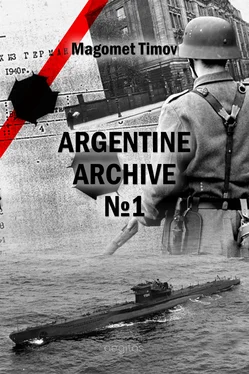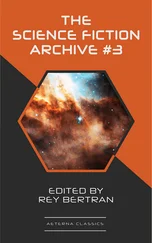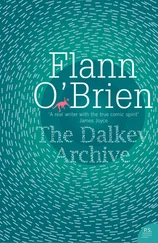“When has it ever been otherwise?” Kotov shrugged his shoulders. Sudoplatov nodded in agreement. “Then here's to you, my friends. The last one, so to speak.”
Svetlov and Kotov were tensed, realizing a hundred jokes had run out and, judging by the tone of the lieutenant-general, for a long time.
“You won't have six months to prepare. Four months at most. Cat, you must be in Argentina by Catholic Christmas, no later. Considering the transfer plan, which involves moving through several third-party, so to speak, countries, and the sea passage, the entire preparation process should be completed by mid-October. That’s how it is.”
Svetlov frowned. The major paused for a moment, as if lost in thought, then his face lit up with a contented smile:
“And how was it different during the war? Now, the base is better, and there are plenty of excellent instructors. And these guys are smart, by God! We'll manage.”
Svetlov shook his head:
“We, for our part, will make every effort, of course. And for another four months yet.”
“Four months is not one hundred and twenty-seven days,” Sudoplatov snapped harshly. The faces of his audience immediately hardened. “We’ll get through this.”
“That's right,” the scouts answered, keeping to the charter, and rose from their seats. Sudoplatov nodded.
“Then let's get down to business,” he said and took out a folder from his briefcase with a ‘Top Secret – Exclusively for internal use’ stamp on the front. “I hope everyone here understands that we will actively confront the American intelligence agencies?”
It turned out that "universal human values"
fully coincide with the national interests of the United States.
Leonid Shebarshin
July 27, 1950
Not far from Valparaiso
Chile
Redrick Walsh sat high on the ocean shore and watched the whitish crests of the waves lick the cold sand of the beach. Gray wisps of clouds hung over the leaden surface of the waters, ready to burst into the fine, disgusting rain so common at this time of year. Fierce storms have always accompanied the middle of winter here in the Southern Hemisphere, on the deserted Chilean coast, has always been accompanied by fierce storms, sometimes throwing fragile fishing boats onto the coastal cliffs.
Walsh didn't like Chile. In either Cuba or Colombia, conditions were the same: a mild, almost resort climate, cheap drinks, affordable girls. And a minimum of work, a paradise for a field agent of any intelligence agency in the world! But here…
Redrick spat from the high rocky shore down towards the even gray view of the cold beach. An impoverished country whose only importance to American democracy lay in its copper deposits and its ability to control a young part of the Pacific Ocean. The ports were in disgusting condition, and there were practically no roads. Half-starved people grabbed any job they could get their hands on. Here, in such a nutritious broth, American corporations felt like fish in water.
The center-left government gladly admitted northern ‘investors’ into the country, who dished out bribes in abundance left and right. American bankers and businessmen have already subjugated the leading industries. They also monopolized trade, leaving the local elites the opportunity to ‘rule’ at their pleasure, but only in the interests of foreign monopolies.
Ordinary people survived as best they could. Most of the dissatisfied went to the East, where a relatively calm Argentina prospered beyond the Andes range.
Walsh himself secretly dreamed of at least crossing the Andes, if not to return to the States. At almost forty, he was already thinking about retiring from the intelligence service and settling in some small house on the sunny California coast. San Francisco would be fine. He only had to complete the case here, and he could write an appropriate report on the incident.
Redrick Walsh had been in charge of the so-called ‘station’ of the US Central Intelligence Agency in Chile for two years. Coming from naval intelligence, he entered World War II with the rank of lieutenant commander at the naval base in Pearl Harbor and witnessed the first defeat of the American intelligence service, which missed the concentration and subsequent attack on the harbor by a Japanese aircraft carrier formation.
Stunned by the explosions of the bombs. Stunned by the sight of the Arizona ripped apart and carrying away to the bottom of the bay in a few minutes the lives of thousands of American sailors. Crushed to the ground by bursts from the machine guns of Japanese Zeros. Walsh realized at once that naval intelligence was not his strong point. He was not a coward. In fact, during that very attack on Pearl Harbor, he organized the calculation of some half-broken anti-aircraft battery and resisted the second wave of bombers, now targeting the city itself. And they even shot down one and knocked out a second Japanese fighter-bomber. Redrick earned the Silver Star for this.
The heroism of the lieutenant commander was deservedly appreciated not only by the fleet but also by the direct leadership. After the theater of operations moved somewhat away from Hawaii, and life in Honolulu returned somewhat to normal, they transferred Walsh to the intelligence office. He engaged there in strategic planning for his service in the Philippines and Malaysia until the end of the war.
He had to work for some time in the apparatus of the occupation forces in Okinawa after the war. There he helped deploy an intelligence network, now against his recent ally in the Far East – the Soviet Union. Here he was successful enough and was about to end his career in intelligence, but another restructuring occurred. In America, they systematized the work of the many intelligence services, bringing everything under one umbrella.
In 1947, US President Harry Truman passed the National Security Act, because of which the Federal Bureau of Investigation (FBI) relinquished some of its powers in information gathering. It shifted this onto the shoulders of the newly created entity – the CIA or the US Central Intelligence Agency. The basis of the CIA was the Office of Strategic Services, but the structure also included representatives of army and navy intelligence. So, Walsh got into the ‘office’.
The new leadership appreciated his organizational and other talents and, after certain retraining at the ‘Farm’ near Williamsburg, he went to conquer the expanses of Chile.
The work of a ‘station chief’ in Chile could well be considered a sinecure. On the one hand, the local government was quite loyal to the United States, being fed from the generous palm of Uncle Sam. On the other hand, there is an incredibly boring existence in an area that no one showed any genuine interest in. A minimum of industry, a pocket army, an equally impotent fleet. What geopolitical interests could there be? The picture was, however, different as far as American industrial corporations were concerned.
True, there was one moment that warmed Walsh's soul. The day before, Colonel Snyder from the European department phoned him on a closed line and said a headquarters representative with certain powers was rushing over to meet him. And it was here, a few miles from Valparaiso, on the disquieting ocean shore. Walsh didn’t quite understand why there were these conditional measures of secrecy in Chile, but something told him that there was going to be a change in his fate. As an experienced scout, Redrick trusted his intuition, and as a rule, it did not deceive him.
Now Commander Walsh pulled back the sleeve of his cloak and glanced at the dial of his army watch: it was three o’clock. The messenger, if he arrived in Santiago, should have shown up by now. The wind blew in from all directions on this part of the shore, and there was nowhere to hide. But when a soft “Hello!” came from behind him, Redrick shuddered and turned around sharply.
Читать дальше












